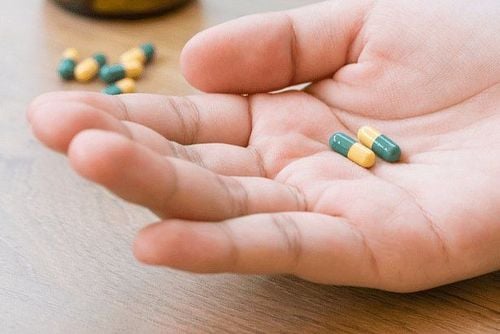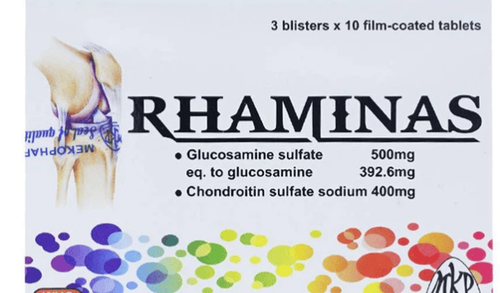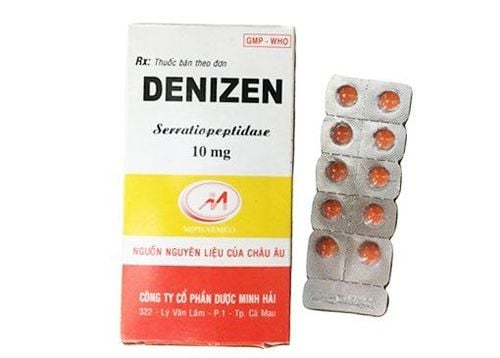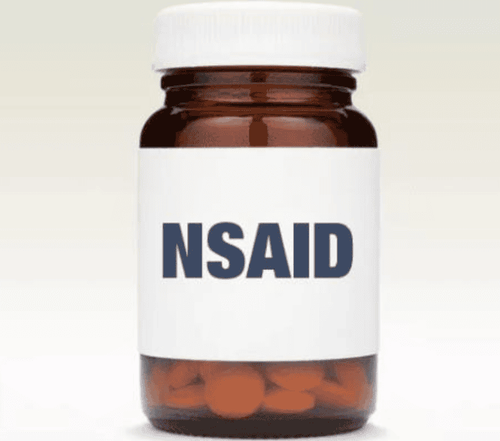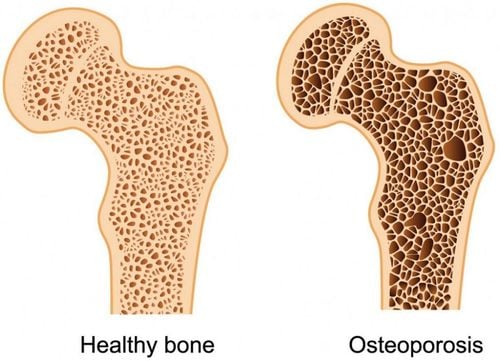This is an automatically translated article.
Arthamin drug containing the active ingredient Meloxicam is indicated in the symptomatic treatment of chronic inflammatory pain in rheumatoid arthritis, osteoarthritis, ankylosing spondylitis... Let's learn about the uses, the notes When using Arthamin through the article below.
1. Uses of the drug Arthamin
"What is Arthamin?". Arthamin is made in the form of tablets containing the active ingredient Meloxicam 7.5mg. Meloxicam belongs to the group of non-steroidal anti-inflammatory drugs (NSAIDs). The anti-inflammatory effect of Meloxicam is through inhibition of prostaglandin biosynthesis (inflammatory mediators). The inhibitory effect of prostaglandins at the site of inflammation is very strong (multiple times that of the kidney or stomach).
Arthamin is indicated in the following cases:
Short-term symptomatic treatment of degenerative joint disease; Symptomatic long-term treatment of ankylosing spondylitis, ankylosing spondylitis or rheumatoid arthritis.
2. Dosage of Arthamin
Arthamin dosage is prescribed by the treating doctor based on the patient's condition and tolerability. Some dosage recommendations are as follows:
Ankylosing spondylitis, rheumatoid arthritis: Take 1 tablet/time x 2 times/day. The dose can be reduced to 1 tablet (7.5mg)/time/day depending on the patient's condition; Osteoarthritis: Take 1 tablet (7.5mg)/time/day. In case of necessity, the dose can be increased to 2 tablets (7.5mg)/day; Patients at high risk of side effects: The recommended starting dose is 1 tablet (7.5mg)/day; Patients with renal failure requiring hemodialysis: The dose should not exceed 1 tablet (7.5mg)/day; Children: The safety and effectiveness of Arthamin have not been determined, so it is not used to treat children.
3. Arthamin side effects
Arthamin can cause some side effects as follows:
On the digestive system: Diarrhea, abdominal pain, indigestion, vomiting, flatulence and transient abnormalities due to changes in liver function; Hematology: Blood count disorder, anemia, thrombocytopenia, white blood cell disorder; Skin: Itchy rash, pruritus, urticaria, photosensitivity, stomatitis; Respiratory system: Onset of asthma attacks; Nervous system: Headache, fatigue, dizziness, drowsiness; Cardiovascular system: Hypertension, edema, palpitations, flushing; Urinary system: Increased urea, blood creatinine; Hypersensitivity reactions: Anaphylactic reactions, mucosal edema. In case of experiencing unwanted effects, the patient should stop using Arthamin and notify the treating doctor.
4. Note when using Arthamin
4.1. Contraindications Contraindicated to use Arthamin drug in the following subjects:
Patients with hypersensitivity to Meloxicam or any component of Arthamin drug; Patients with hypersensitivity to Aspirin and other non-steroidal anti-inflammatory drugs; Patients with a history of nasal polyps, asthma, urticaria, angioedema after using Aspirin or non-steroidal anti-inflammatory drugs; Patients with advanced gastric - duodenal ulcer; Patients with severe liver failure; Children under 15 years old; Pregnant; Women are breastfeeding. 4.2. Precautions while using Arthamin Do not use Meloxicam as an alternative to corticosteroids or to treat corticosteroid deficiency.
Risks of jaundice, liver necrosis, acute hepatitis and liver failure have been reported with long-term non-steroidal anti-inflammatory drug therapy. Therefore, patients with symptoms and signs of impaired liver function should be cautious when treated with Arthamin.
With caution when treating with Arthamin in patients with dehydration, it is necessary to use rehydration electrolytes before treatment with Arthamin.
Use with caution in patients with renal disease, because some metabolites of Meloxicam are excreted by the kidneys and should be closely monitored in patients with renal impairment.
There have been reports of the risk of fluid retention and edema with NSAID therapy, therefore Arthamin should be used with caution in patients with hypertension, heart failure, and patients with fluid retention.
For pregnant women: Do not use Arthamin in pregnant women, women who are breastfeeding.
Drivers and machine operators: Arthamin does not affect the patient's ability to drive and operate machines.
5. Arthamin drug interactions
Do not use Arthamin together with the following drugs:
Other non-steroidal anti-inflammatory and pain relievers: Increased risk of side effects on the gastrointestinal tract; Thrombolytics, anticoagulants such as Heparin, warfarin: Increased risk of bleeding; Lithium: Increased plasma concentrations of Lithium; Methotrexate: Increased blood toxicity of Methotrexate; Instrumental contraception: Nonsteroidal anti-inflammatory drugs have been shown to reduce the effectiveness of IUDs. Caution when using Arthamin with the following drugs:
Diuretics: Increased risk of acute renal failure in dehydrated patients; Antihypertensive drugs: Arthamin reduces the antihypertensive effect; Cholestyramine: Increased elimination of Meloxicam due to binding in the gastrointestinal tract; Ciclosporin: Increased nephrotoxicity of ciclosporin. Drug interactions may occur that reduce the therapeutic effect of Arthamin, increasing the risk of unwanted effects. Therefore, to ensure safety and effectiveness, patients need to inform their doctors about the drugs and functional foods they are using before being treated with Arthamin.
If you have any further questions about Arthamin, you should consult your doctor for more effective use of the drug.
Please dial HOTLINE for more information or register for an appointment HERE. Download MyVinmec app to make appointments faster and to manage your bookings easily.




